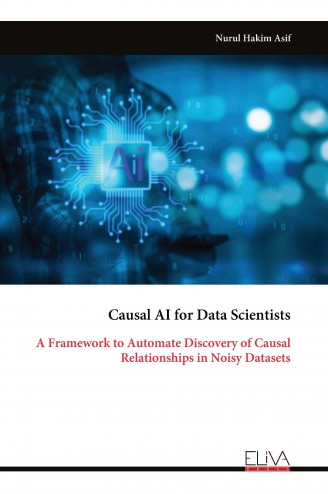
Causal AI for Data Scientists
€ 42.5
Descripción
Causal AI for Data Scientists: A Framework to Automate Discovery of Causal Relationships in Noisy Datasets presents a significant advancement in the intersection of machine learning, statistical inference, and mechanistic interpretability, tackling the long-standing challenge of uncovering robust causal structures in the presence of noise, latent confounders, and high-dimensional data. The paper is a timely and impactful contribution that addresses the core limitations of existing causal discovery algorithms, many of which falter under real-world conditions due to restrictive assumptions or an over-reliance on statistical correlations. Traditional approaches like Granger causality, PC algorithm, GES, and even more recent neural methods like NOTEARS and DAG-GNN have made strides in structure discovery but often fail in practical settings where data is incomplete, entangled, and affected by hidden variables. In response to these challenges, the authors propose a hybrid, multi-level causal inference framework that blends symbolic methods and neural network-based architectures. This fusion of symbolic reasoning and neural computation is designed to automate the discovery of causal relationships by applying targeted interventions and leveraging latent representations that encode abstract but interpretable features. The framework is grounded in an encoder-decoder neural network architecture that performs layered interventions at three distinct levels—input, latent, and hidden layers—thereby enabling a comprehensive examination of how information and influence propagate through the system. At the heart of this approach is a suite of novel causal metrics, including Causal Effect Strength (CES), Intervention Specificity (IS), and Polysemanticity Score (PS). CES quantifies the magnitude of influence one variable exerts on another when perturbed, while IS captures the precision or localization of this influence, distinguishing meaningful causal drivers from confounded or noisy variables.
